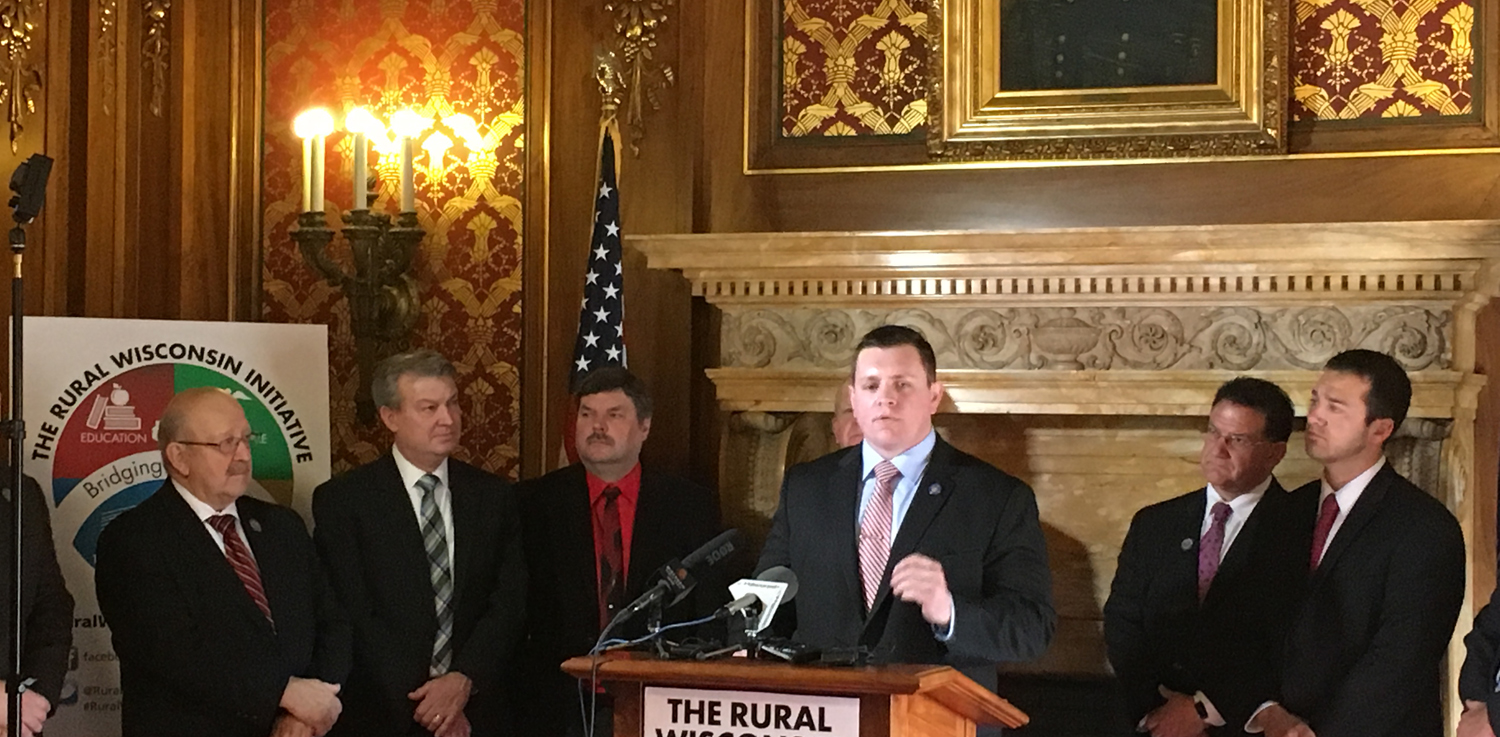Testin: Prioritizing Rural Wisconsin

By Senator Patrick Testin
I come from a small town in rural Wisconsin.
I had access to a great education, I was able to work several jobs to help support my education, and I didn’t have to worry about traveling for miles to see a doctor.
Growing up in rural Wisconsin provided me with great opportunities, and I knew that I would look for someplace similar to live after I graduated from UW-Stevens Point. That’s why I chose to live in the Town of Hull here in Central Wisconsin. I appreciate the pace, the values, and most importantly, the people. It’s where I plan to raise my family.
I want every child in Wisconsin to have the same opportunities that I did. That’s why I stepped out last week in support of the Rural Wisconsin Initiative. I’ve heard too many stories about students who graduate from a university like UW-Stevens Point, but believe they have to move to Milwaukee, Chicago, or Minneapolis to succeed.
That’s a misconception that we have to work to change. The Rural Wisconsin Initiative is a growing package of legislation that focuses on improving access to health care, technology, education, and workforce opportunities in the rural parts of our state.
It was developed last year by Reps. Ed Brooks (Reedsburg), Romaine Quinn (Rice Lake), and Travis Tranel (Cuba City). It grew to be embraced by twenty-six State Representatives, and four Senate partners – including me.
The package strives to provide equality of opportunity to all Wisconsin residents, whether someone lives in Milladore or Madison, Sparta or Sun Prairie. One of our principle focuses is rural broadband expansion. In the last few weeks, I’ve met with school superintendents, business owners, and health care providers who all spoke about the importance of having reliable rural internet access. Educators use the internet as a teaching tool, and children who go home to a limited connection or no connection are at a serious disadvantage. Businesses use the internet to communicate with customers and vendors, and slow internet hurts their efficiency and their bottom line.
Ambulances need to be able to transmit data quickly and securely as they transport emergency patients to the hospital. I am proud to be a co-author on the broadband opportunity bill that will make a major investment in Wisconsin’s broadband infrastructure.
We aim to put $23 million into broadband expansion, including $7.5 million more to the Technology for Educational Achievement (TEACH) Program – which will directly benefit rural children. We can’t talk about workforce development and the future of the economy, but then fail to provide the tools the next generation of workers will need to thrive.
We must prioritize investment in our rural communities, to keep them strong and to keep our state strong. By connecting the state with broadband infrastructure we can retain our way of life while simultaneously ensuring that the best jobs and opportunities are available to all Wisconsinites– not just those who choose to live in urban centers.







